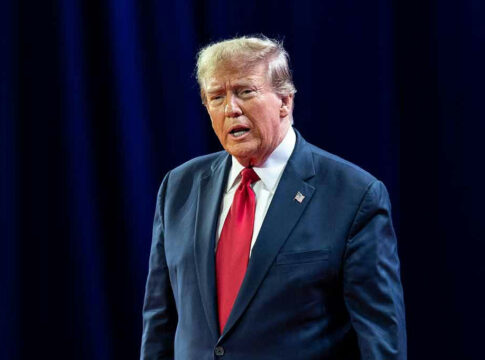A Politico reporter who once called President Trump a “demagogue” now covers his presidency, raising questions about media neutrality.
Politico’s Controversial Assignment
Cheyanne Daniels, a reporter who infamously labeled President Donald Trump a “demagogue,” now covers his presidency for Politico. Her appointment has stirred controversy, as many question the decision to assign someone with a history of strong anti-Trump sentiments to such a critical role. Daniels’ previous remarks, made during her time as a master’s student at Northwestern University, included emotional responses to Trump’s electoral victories.
As a master's student at Northwestern’s esteemed journalism school, Cheyanne Daniels revealed that she cried when Donald Trump was elected in 2016 because she knew "horrible things were to come." She now covers the Trump presidency for Politico. New from me ⬇️ pic.twitter.com/4sn0nMMlaD
— Collin Anderson (@CAndersonMO) September 29, 2025
Her career progression from a “race and politics reporter” at The Hill to covering the White House for Politico marks a significant shift in her professional responsibilities. However, her past social media posts, where she expressed distress over Trump’s presidency and described his supporters in harsh terms, challenge her ability to maintain neutrality.
Media Bias and Its Implications
The decision to hire Daniels highlights ongoing concerns about media bias and its impact on public perception. Her history of public disdain for Trump raises questions about the objectivity of her reporting. Critics argue that such assignments reinforce perceptions of media bias, especially in politically charged environments. This move by Politico could deepen the divide between conservative audiences and mainstream media outlets.
Not long after Trump’s 2024 election victory, reports emerged of White House reporters feeling “exhausted” even before his second term began. Such sentiments reflect a broader media fatigue and frustration, often perceived as bias against conservative leadership.
Reactions to Trump’s Election
Trump’s electoral victories have consistently been met with polarized reactions. In 2016, leftist groups like Black Lives Matter expressed shock and anger, viewing the election as a setback. Similarly, Trump’s 2024 win prompted another wave of outrage, with social media serving as a battleground for public expression. These reactions underscore a persistent divide in American society, where political affiliations sharply influence perspectives on leadership.
CHECKING IN ON POLITICO:
As a master's student at Northwestern University's esteemed journalism school in 2020, Cheyanne Daniels tweeted that she cried when President Donald Trump was elected four years earlier because she knew "horrible things were to come."
She now covers… pic.twitter.com/2YtoF1i8dD
— Washington Free Beacon (@FreeBeacon) September 30, 2025
The aftermath of Trump’s latest win also reportedly led to health issues among his opponents, with reports of depression and anxiety surfacing. Dr. Glenn Burnett, an internist from Wyoming, noted that these symptoms reflect the genuine fear and panic experienced by some, advising a digital detox for mental health recovery.
Sources:
Politico Reporter Who Said She Cried Over Trump’s Election Now Covers His Presidency
Liberal White House Reporters Already ‘Exhausted’ with Second Trump Term
Black Lives Matter Activists Respond to Trump Victory with Fear, Violence, Resolve
Doctor Says Democrats Suffering Real Crisis After Trump’s Win

